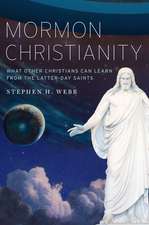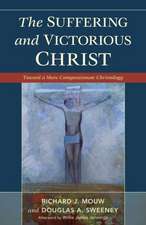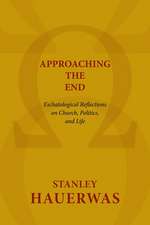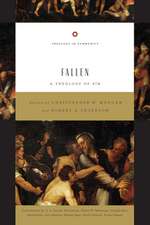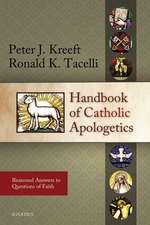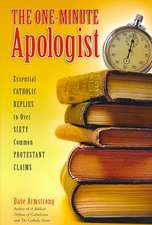Emotions and Religious Dynamics
Autor Nathaniel A. Warne Editat de Douglas J. Daviesen Limba Engleză Paperback – 30 iun 2021
| Toate formatele și edițiile | Preț | Express |
|---|---|---|
| Paperback (1) | 384.86 lei 6-8 săpt. | |
| Taylor & Francis – 30 iun 2021 | 384.86 lei 6-8 săpt. | |
| Hardback (1) | 1058.65 lei 6-8 săpt. | |
| Taylor & Francis – 20 dec 2013 | 1058.65 lei 6-8 săpt. |
Preț: 384.86 lei
Nou
Puncte Express: 577
Preț estimativ în valută:
73.64€ • 75.97$ • 61.46£
73.64€ • 75.97$ • 61.46£
Carte tipărită la comandă
Livrare economică 27 martie-10 aprilie
Preluare comenzi: 021 569.72.76
Specificații
ISBN-13: 9781032099057
ISBN-10: 1032099054
Pagini: 232
Dimensiuni: 156 x 234 x 12 mm
Greutate: 0.34 kg
Ediția:1
Editura: Taylor & Francis
Colecția Routledge
Locul publicării:Oxford, United Kingdom
ISBN-10: 1032099054
Pagini: 232
Dimensiuni: 156 x 234 x 12 mm
Greutate: 0.34 kg
Ediția:1
Editura: Taylor & Francis
Colecția Routledge
Locul publicării:Oxford, United Kingdom
Cuprins
Emotions and Religious Dynamics
Notă biografică
Douglas J. Davies is Professor in the Study of Religion at Durham University and Director of its Centre for Death and Life Studies. His study Emotion, Identity, and Religion: Hope, Reciprocity, and Otherness (2011), and edited collection with Chang-Won Park, Emotion, Identity and Death: Mortality across Disciplines (2012), complement this present edited collection. Other recent publications include Natural Burial: Traditional -Secular Spiritualities and Funeral Innovation (2012) and The Theology of Death (2008). Nathaniel Warne is currently a PhD candidate at Durham University, UK. His interests are primarily in theological ethics and political philosophy. His current research looks at the relationship between eudaimonism, the theoretical approach to happiness and ethical life, and the doctrine of divine calling with special interest in the theology of work. His other research interests include historical theology and the intersection of metaphysics with ethics.
Descriere
Religious communities often select and foster certain emotions over others. Often, it is the underlying emotional pattern of a group rather than its doctrines that either divides it from, or attracts it to, others. These issues, so important in today's world, are explored in this book in a genuinely interdisciplinary way by anthropologists, psychol

